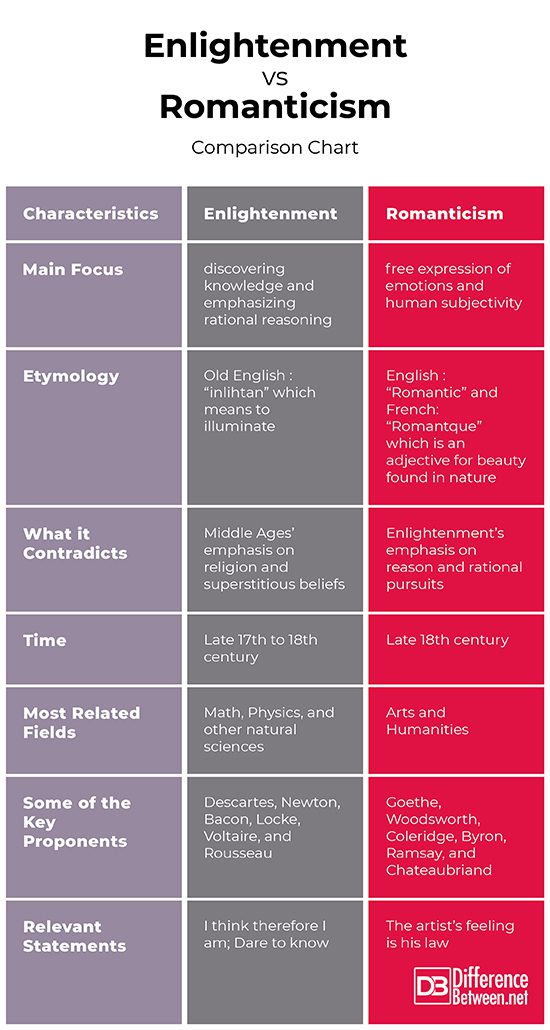The Renaissance and the Enlightenment were two important historical periods that had a profound impact on Western culture and society. The Renaissance emerged in Italy in the 14th century and was characterized by a revived interest in art, literature, and classical learning, with humanism being one of its primary philosophical underpinnings. The Enlightenment, on the other hand, emerged in Europe during the 18th century and was based on the principles of reason and rationality, with scientific inquiry being central to its philosophy. Both eras placed great emphasis on education, knowledge, and creativity and continue to influence Western culture and society today.
The Renaissance vs. the Enlightenment: Comparing Two Important Eras
Introduction
The Renaissance and the Enlightenment were two of the most important historical periods that had a profound impact on Western culture and society. The Renaissance emerged in Italy in the 14th century, while the Enlightenment flourished in Europe during the 18th century. Both eras were characterized by a renewed interest in art, science, philosophy, and literature. However, the Renaissance was mainly focused on the revival of classical culture and the arts, whereas the Enlightenment emphasized reason, rationality, and progress.
Historical Background
The Renaissance was a period of cultural revival that emerged in Italy in the 14th century and spread throughout Europe until the 17th century. It was characterized by a renewed interest in art, literature, and classical learning. The Renaissance was a time of great creativity and innovation, with artists and writers producing some of the most influential works in history, such as Leonardo da Vinci’s “Mona Lisa” and Michelangelo’s “David.”
The Enlightenment, on the other hand, emerged in Europe during the 18th century and was a period of intellectual and philosophical growth. It was characterized by an emphasis on reason, rationality, and scientific inquiry. The Enlightenment was a time of great scientific advancements, with figures like Isaac Newton and Galileo Galilei leading the way.
Philosophical Underpinnings
One of the primary philosophical underpinnings of the Renaissance was humanism, which emphasized the value of human beings and their potential for greatness. The Renaissance thinkers believed that education and knowledge were the keys to unlocking human potential, and that art and literature were essential in the pursuit of knowledge and understanding.
The Enlightenment, on the other hand, was based on the principles of reason and rationality. Enlightenment thinkers believed that scientific inquiry could uncover the laws of nature and explain the mysteries of the universe. They rejected the authority of Church and State and sought to promote individual freedom and autonomy.
Art and Literature
The art and literature of the Renaissance were characterized by a renewed interest in classical forms and themes. Artists and writers sought to revive the beauty and elegance of ancient Greece and Rome, and their works were marked by a sense of harmony, proportion, and balance. Renaissance art was also characterized by the use of perspective and realism, which gave paintings a sense of depth and dimensionality.
The art and literature of the Enlightenment, on the other hand, were characterized by a shift towards realism and a focus on the individual. Enlightenment thinkers believed that art and literature should reflect the real world and should be used to promote social and political reform. Novelists such as Jane Austen and Voltaire wrote satirical works that criticized social institutions and promoted the ideals of reason, freedom, and equality.
Science and Technology
Science and technology were central to both the Renaissance and the Enlightenment. During the Renaissance, scientists like Galileo Galilei and Johannes Kepler made groundbreaking discoveries in the fields of astronomy and physics. They challenged the traditional understanding of the universe and sought to understand the natural world through empirical observation and experimentation.
During the Enlightenment, scientists like Isaac Newton and Benjamin Franklin made important contributions to the fields of physics and electricity. They developed new theories and technologies that would revolutionize the world and lay the foundation for the Industrial Revolution.
Conclusion
In conclusion, the Renaissance and the Enlightenment were two important eras in Western history that had a profound impact on art, literature, philosophy, and science. While the Renaissance was characterized by a renewed interest in classical culture and the arts, the Enlightenment emphasized reason, rationality, and progress. Despite these differences, both eras were marked by an emphasis on education, knowledge, and creativity, and both continue to influence Western culture and society to this day.
